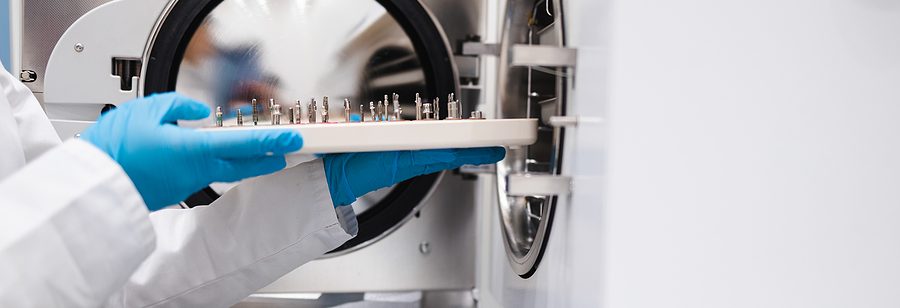Medical Waste Disposal Methods

You take care of how you handle your medical waste. Material is disposed of in appropriate bags with proper labeling, and it is isolated, awaiting pickup for treatment and disposal. You have been responsible and compliant with local, state, and federal regulations. It makes sense you would have questions. What are the medical waste disposal methods?
All material that contains bodily fluids has the potential to be infectious. It is medical waste. However, any waste generated in creating medical waste is also medical waste. As much as 85% of medical waste is non-hazardous. The packaging for a syringe, bandages wrapping a wound, masks, gloves, gowns, cotton swabs, and even the paper you sit on in the exam chair are all medical waste.
However, stocks and cultures from labs, animal waste from lab animals, the carcasses of those animals, and the hosts of chemicals, sterilants, and reagents used in labs are medical waste. The list goes on, and it piles up and up.
It All Begins With Proper Bagging
Bag colors help professionals identify and adequately deal with infectious medical waste when it arrives at a disposal site.
- Red bags for syringes sans needles, soiled gloves, catheters, IV tubes, etc.
- Yellow bags for dressings, bandages, swabs with body fluids, blood bags, human anatomical waste, and everyone’s worst nightmare: body parts
- Blue-marked cardboard boxes for glass vials, ampules, and similar glassware
- White translucent puncture-proof containers for needles, blades, and other sharps
- Black bags for “nonbiological” medical waste such as hospital stationery; leftover foods, peels, rinds, and other kitchen waste; medicine packaging; as well as disposable masks, caps, cups, shoe-covers, and cartons. Also, sweeping dust.
The Environmental Threat
In 1987-88 an environmental disaster occurred, remembered as “The Syringe Tide.” Hypodermic needles and other medical detritus washed up onto New York City, Jersey Shore, and Long Island beaches. Since then, regulation has intended to prevent similar incidents and provide for environmentally friendly and safe means to dispose of medical waste.
Medical Waste Disposal Methods

Autoclaving is one of the first steps taken with medical waste. This method is especially appropriate when dealing with Sharps.
The idea is simple. Medical waste material is heated to 284° F. This renders any infectious material harmless. The waste can be disposed of in a landfill. However, some disposal sites separate materials, such as plastic and metal, to recycle them.
Disposal of untreated medical waste can contaminate the ground beneath it and contaminate drinking, ground, and surface water. Chemicals can be used to neutralize biological or chemical hazards. However, treating medical waste with chemicals can result in chemical contamination of the surrounding area. Disposal sites must use chemicals used to treat waste following regulatory requirements. Landfills must be correctly constructed to prevent ground and water contamination.
Burning medical waste is standard practice; however, incineration at disposal sites is challenging since it releases toxins and particulate matter into the air. Incineration of heavy metals or materials with high metal content (in particular lead, mercury, and cadmium) can spread toxic metals in the environment. Incinerated materials containing or treated with chlorine can generate dioxins and furans, which are human carcinogens.
Incineration must be done at temperatures over 850 – 1100° C. In addition, adequate screens and filters are necessary on incinerator exhausts to prevent the release of contaminants and particulates into the atmosphere.
Properly Dispose of Your Medical Waste With Medical Waste Pros
A single hospital can produce a ton of medical waste in only one day. The challenges are not going to go away. We won’t go away, either. Medical Waste Pros will stand beside you and make sure you find the service solutions you need to meet all the challenges that come your way. Call us at (888) 755-6370 or fill out the contact form to receive free quotes on our medical waste disposal services today.










